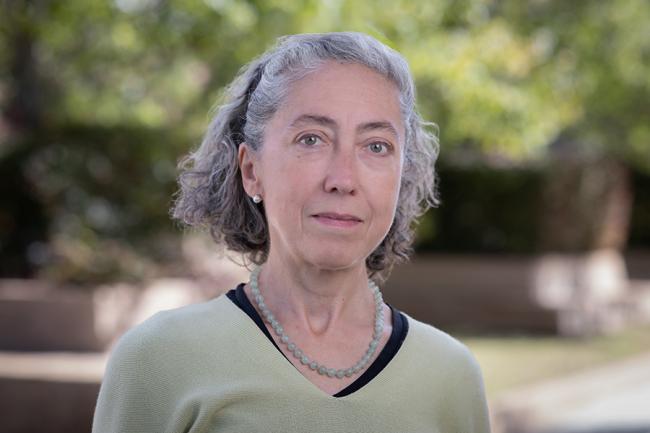RCC Spotlight: Dr. Laura Reina

Dr. Laura Reina completed her bachelor’s degree in physics at the University of Milan. She then pursued her master’s degree and Ph.D. in high-energy theoretical physics from the International School of Advanced Studies in Trieste, Italy. Following completion of her Ph.D., Dr. Reina engaged in postdoctoral work at the University of Brussels and Brookhaven National Laboratory. She joined the teaching staff at FSU in 1998 and was promoted to full professor in 2007.
Then, in 2017, Dr. Reina earned the title of FSU Distinguished Research Professor and a Joseph Owens Endowed Professor in 2022. Additionally, Dr. Reina is a Fellow of the American Physical Society and of the American Association for the Advancement of Science. Dr. Reina’s research focuses on high-energy particle physics, and more specifically collider physics. From a theoretical viewpoint, collider physics is the study of the nature and interactions of elementary particles as probed at high-energy particle colliders.
As a particle physics theorist, Dr. Reina studies the fundamental laws of physics that explain why particles are the way they are, how they are produced in the evolution of the universe, and how fundamental phenomena that are observed both on earth and in the cosmo are the way they are. Dr. Reina and her team research the tiniest constituents of matter, which are called elementary particles. Technically, they do not contain any smaller components; they are the elementary components of everything that exists in the universe. She studies these constituents and the forces that mediate their interactions. Among them is the familiar electromagnetic force, but in the microscopic sub-nuclear world, the other two forces that particle physics calls "weak" and "strong" are quite important.
While experimental physicists are responsible for building particle accelerators, designing the detectors, controlling them, and collecting data, theorists like Dr. Reina play a crucial role in interpreting the results. Once experimentalists analyze their data, theorists step in to help make sense of the findings. Dr. Reina and her team provide essential calculations and theoretical predictions that explain the observed phenomena and suggest what might be discovered next. As an example, Dr. Reina's group has been deeply involved in developing theoretical predictions related to Higgs boson physics, many of which have been tested at the Large Hadron Collider, located at the CERN laboratory, in Geneva, Switzerland. These offer insights into the fundamental nature of particles and forces.
At its core level, Dr. Reina, her team, and her fellow particle physicists’ research has a crucial impact on human knowledge development. Their findings bring us closer to understanding the fundamental physical laws of our universe, and their daily work leads to the creation of new technology needed in the process, from special materials to the internet and more. To enable this kind of theoretical research, Dr. Reina and her group rely heavily on the resources provided by the FSU Research Computing Center (RCC).
Whether she’s in her office at FSU or visiting other institutions and laboratories, Dr. Reina connects daily to the RCC’s High Performance Computing (HPC) Center. This access is essential for her group’s work, which involves large-scale simulations of particle collisions. Using sophisticated Monte Carlo and other computational algorithms, her team can model and predict the topologies and cross-sections of particle events. These provide vital theoretical predictions that experimental physicists can then compare against collider data.
Beyond providing raw computational power, the RCC’s on-campus presence allows for close collaboration and efficient troubleshooting. For Dr. Reina’s team, this combination of accessibility, support and power has been instrumental in advancing their contributions to theoretical physics.
